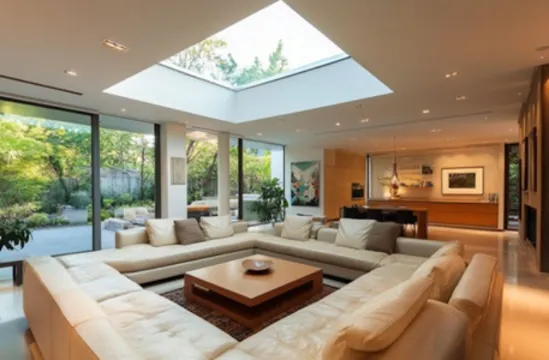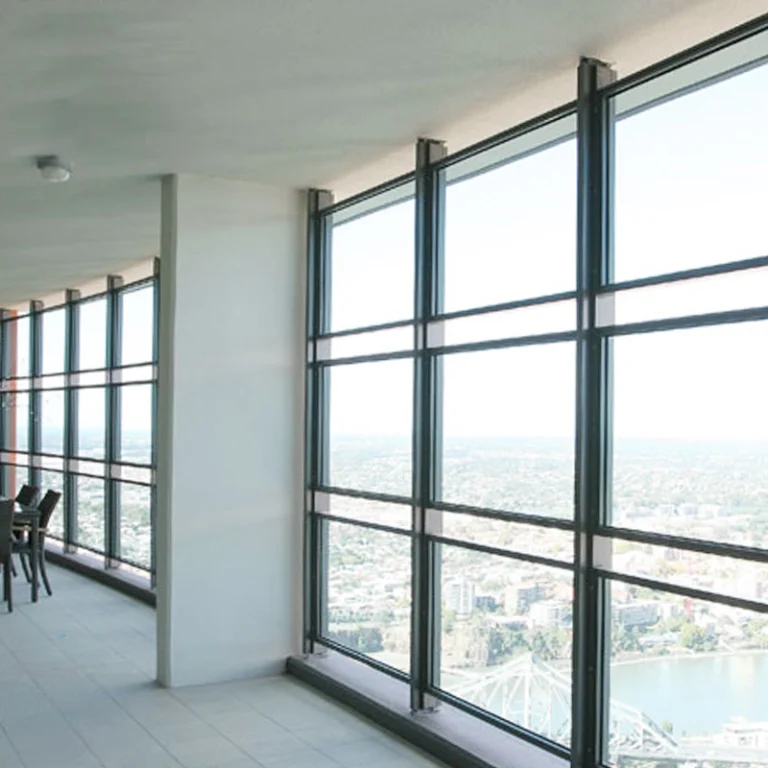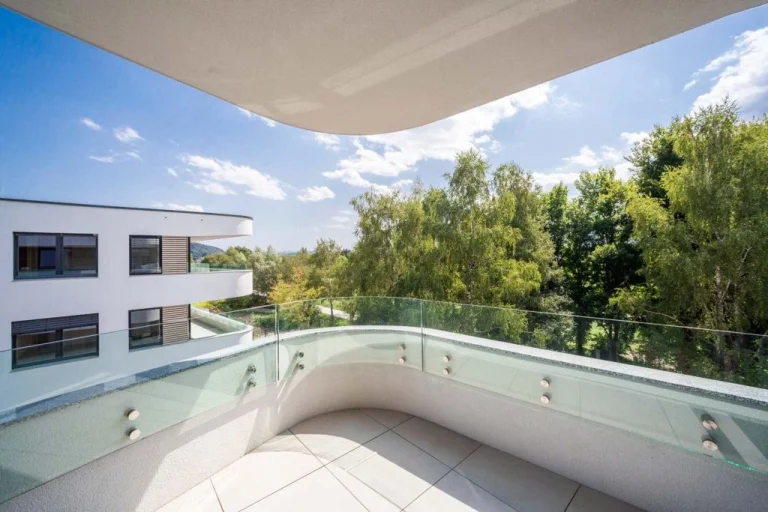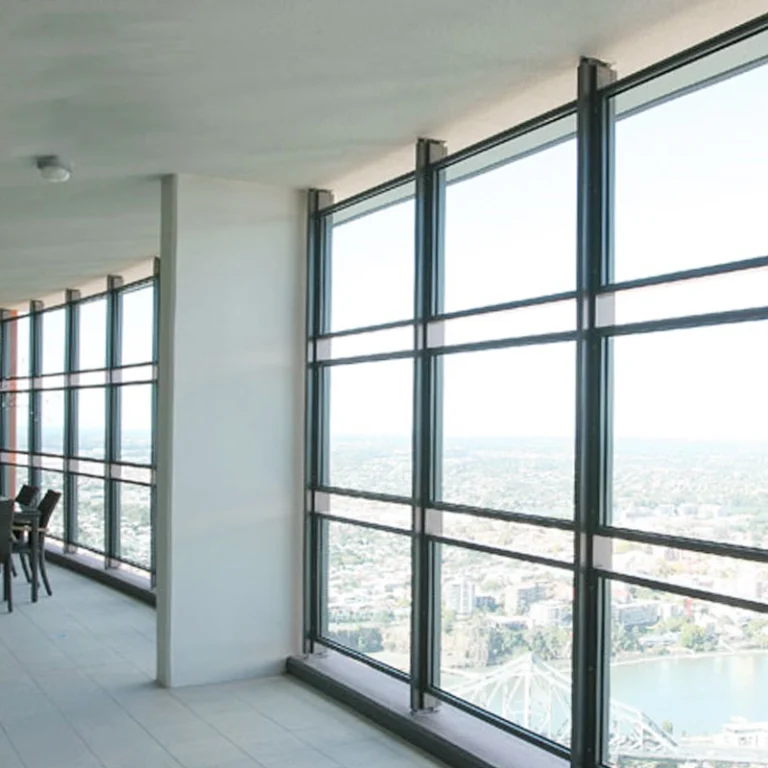
Introduction – Why Glass Walls Are a Modern Home Trend
Open living concepts have taken off in recent years. Homes now favor open floor plans that blend kitchen, dining, and living areas into one seamless space. This setup lets natural light flood in, making rooms feel bigger and more inviting. Glass walls play a key role here. They act as both practical dividers and eye-catching features. In modern interior design, glass brings elegance and a sense of openness. It turns ordinary walls into something special, blurring lines between spaces without closing them off. Think of how a simple glass panel can make a cozy living room feel expansive. That’s the trend homeowners chase today.
Growing Popularity of Open Living Concepts
Contemporary homes lean toward open floor plans. Walls come down to create flow. Families move easily from cooking to lounging. Natural light pours through, lifting moods and cutting energy bills on artificial lights. Spatial perception shifts too. A room with glass feels twice as large, even if square footage stays the same. It’s no wonder builders push this style. Quick fact: surveys show over 70% of new homes opt for open layouts.
Role of Glass in Modern Interior Design
Glass serves dual purposes. It functions as a barrier yet stays transparent. Aesthetically, it adds polish. Glass walls elevate plain rooms to sleek havens. They enhance openness by letting views extend. Elegance comes from clean lines and reflections. Designers love how glass pairs with minimalism. It reflects light, bounces colors, and keeps things airy. In busy homes, this means less clutter visually.
Types of Glass Walls Suitable for Living Rooms
Choosing the right glass matters for living rooms. High-traffic spots need tough options. Options range from basic panels to advanced setups. Each type fits different needs, like safety or noise control.
Tempered Glass Panels
Tempered glass stands out for safety. It shatters into small, blunt pieces if broken, cutting injury risks. Durability shines in busy areas. Kids running around? No problem. It handles impacts better than regular glass. Ideal for living rooms where furniture shifts often. Plus, it’s heat-treated for strength. Homeowners pick it for peace of mind.
Laminated Glass for Soundproofing
Noise bugs open spaces. Laminated glass fixes that. Layers of glass sandwich a plastic film, blocking sound waves. It cuts chatter from kitchens or streets. Safety bonus: the film holds shards together on impact. Great for homes with kids. Playtime crashes won’t send glass flying. It muffles TV blare too, keeping zones distinct yet connected.
Frameless vs Framed Glass Walls
Frameless designs hug walls without visible edges. They maximize openness, like an invisible divider. Framed ones use metal or wood edges for support. Design-wise, frameless screams modern minimalism. Framed adds warmth, blending with traditional touches. Visual impact? Frameless makes spaces feel endless. Framed grounds the look. Pick based on room vibe. A quick tip: measure twice for frameless to avoid gaps.

Design Considerations for Stylish Glass Walls
Placement sets the tone. Glass walls demand thought on light, privacy, and flow. Mix them with other elements for cohesion.
Placement and Orientation
Natural light shapes mood. Face glass toward south for steady glows, or east for morning cheer. It warms spaces, boosts energy efficiency by relying less on heaters. Position walls to capture views, like gardens. But watch glare. Orient away from direct west sun to dodge harsh afternoons. Energy-wise, it cuts cooling needs in bright setups.
Combining Glass with Interior Elements
Pair glass with wood for contrast. Warm tones soften the cool sheen. Metal frames add industrial edge. Minimalist furniture keeps focus on the glass. Use glass doors for access, partitions for zones, shelving for display. Imagine a wooden console against a glass wall, holding plants. It grounds the transparency. Designers mix textures this way. Non-linear note: sometimes, a bold rug under glass ties everything.
Privacy and Light Control Solutions
Openness clashes with prying eyes. Frosted glass diffuses light, hides views. Tinted blocks UV, cuts fade on fabrics. Smart glass switches opaque with a button, perfect for parties. Balance comes from layers: sheer curtains over clear panels. These options keep light flowing while guarding privacy. Test samples in your space first.
Advantages of Installing Glass Walls in Living Rooms
Glass walls transform living rooms. They bring light, space, and style without major renos.
Enhanced Natural Light
Bright interiors lift spirits. Glass lets sun stream in, no need to expand walls. It scatters light evenly, chasing shadows. Rooms feel alive, vibrant. Even cloudy days brighten up. Homeowners report happier vibes, less lamp use.
Visual Expansion of Space
Illusion of size? Glass delivers. It erases boundaries, making small living rooms feel grand. Airy flow connects areas seamlessly. Reflections double perceived depth. Cozy nooks turn vast. It’s a budget hack for bigger feels.
Modern Aesthetic Appeal
Sleek lines define contemporary homes. Glass fits that bill. Minimalist appeal draws eyes. It screams chic without fuss. Favored in urban lofts, suburban remodels. Pair with neutrals for timeless look. Side comment: trends evolve, but glass endures.
Why Choose Landson Glass for Your Project
Landson Glass specializes in premium solutions. They focus on residential needs.
High-Quality Glass Manufacturing
Landson excels in tempered, laminated, and decorative glass. Their processes ensure clarity and strength. Expertise shows in every panel.
Customization and Design Support
Tailor-made options fit any living room. Landson offers design help, from sketches to specs. Residential projects get personal touch.
Safety and Durability Guarantees
Products meet building codes. Safety features like shatter resistance come standard. Durability lasts years.
Installation and Maintenance Tips
Get it right from the start. Pros handle heavy lifts. Maintenance keeps glass pristine.
Professional Installation Guidelines
Hire experts for stability. They check structures, secure anchors. Long-term hold prevents sags or cracks. Follow codes for wind loads. Skip DIY here; weight demands skill.
Easy Maintenance Practices
Wipe with microfiber and vinegar mix. Avoid abrasives. Streaks? Buff dry. Regular cleans maintain shine. Quick sprays beat buildup.
Long-Term Durability Considerations
Prevent scratches with edge guards. Chips from knocks? Seal gaps. Discoloration fades with UV tints. Inspect yearly. Proper care extends life decades.
Conclusion – Transform Your Living Room with Glass
Glass walls blend function and beauty. They flood spaces with light, expand visuals, and add modern flair. Open living thrives on this openness. Consider them for your home. For pro solutions, consult Landson Glass.
FAQ
Q1: What types of glass are safest for living rooms with children?
Tempered or laminated glass tops the list. Tempered breaks safely into pebbles. Laminated holds together, blocking noise too.
Q2: How do glass walls affect home energy efficiency?
They boost natural light, cutting electric use. But add insulation or tints to avoid heat loss. Orientation matters for max gains.
Q3: Can I install glass walls in an older home?
Yes, with structural checks. Pros reinforce frames. It modernizes without full teardowns.
Q4: What’s the cost range for glass walls?
Varies by size and type. Basic panels start affordable; custom smart glass runs higher. Get quotes.
Q5: How do I clean glass walls without streaks?
Use soft cloths and ammonia-free cleaners. Dry immediately. Pro tip: squeegees work wonders.










